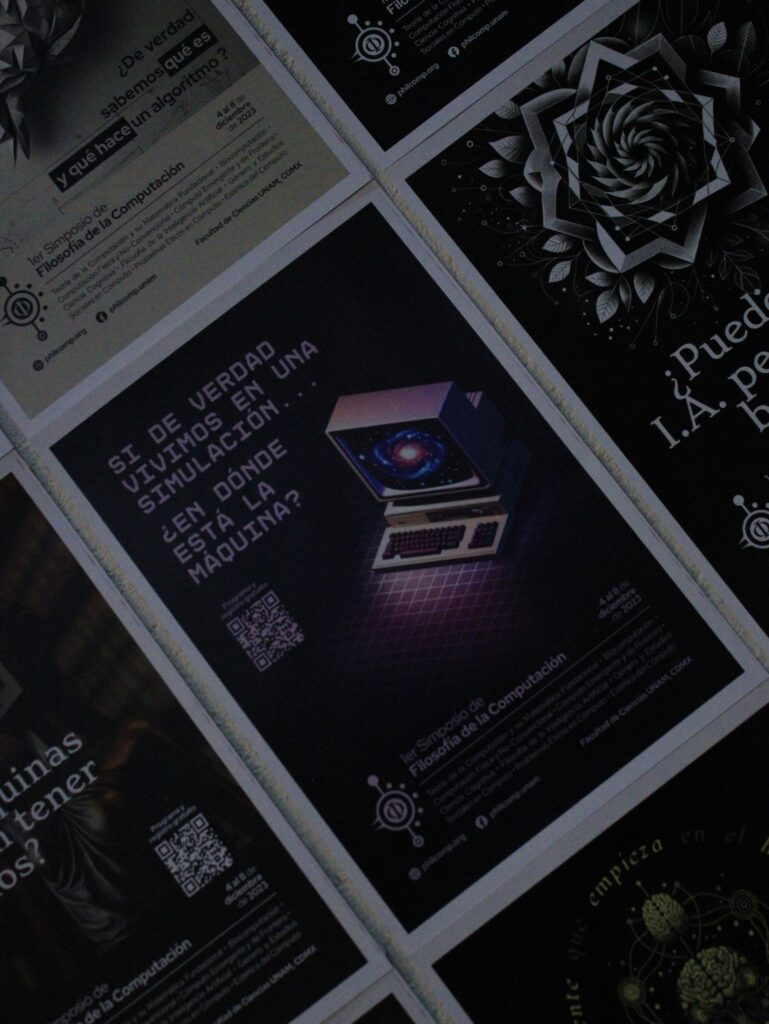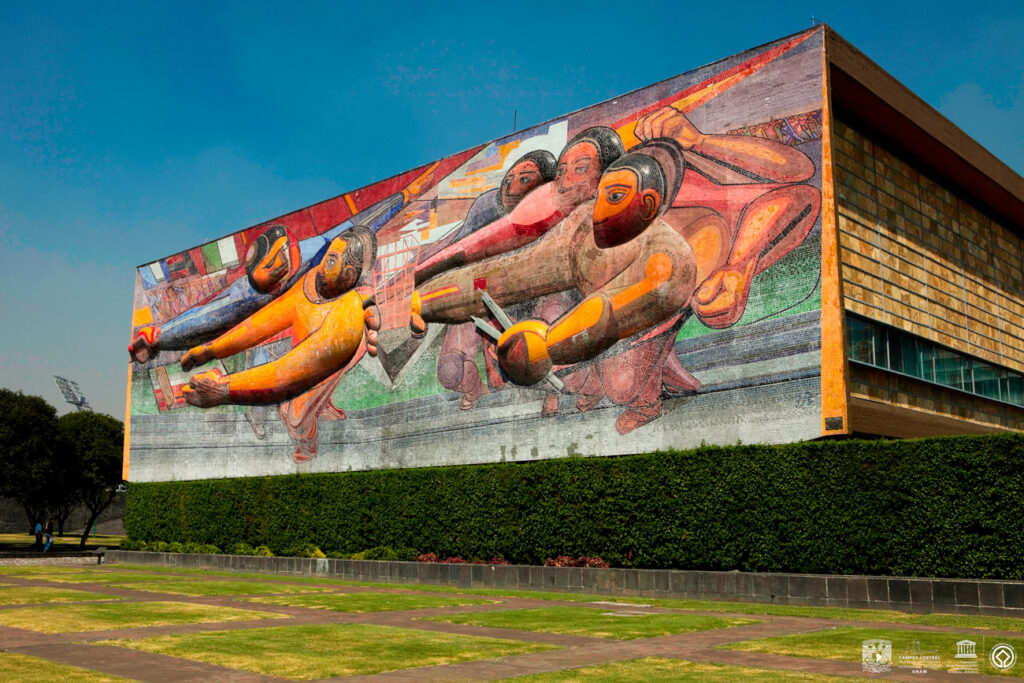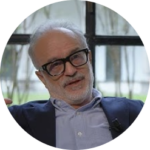NEW SUBMISSION DEADLINE: JULY 18 2025.

Reflections on computing, minds,
and nature
Following the success of our series of Symposia on Philosophy of Computing (2023, 2024) — the first event of its kind in Latin America which helped connect researchers and industry experts with people from all verticals — the Research Group on Philosophy of Computing of the National Autonomous University of Mexico (UNAM) is proud to introduce de 2025 International Conference on Philosophy of Computing. This five-day academic gathering is dedicated to cutting-edge research at the intersection of computation and philosophy, a discussion that has never been more urgent. In an era defined by rapid technological change, ethical dilemmas in AI, and the increasing influence of computational systems on society, we need spaces for critical reflection and rigorous debate. As computation continues to shape our institutions, economies, and even our understanding of knowledge and existence, this conference aims to foster deep interdisciplinary engagement on the philosophical challenges and responsibilities of our digital age.
Celebrating Turing's 1950 "Computing Machinery and Intelligence"
This conference will not only touch on all our thematic axes, but also on the heritage of Turing’s seminal 1950 paper.
OUR VENUE AND HOST:
THE NATIONAL AUTONOMOUS UNIVERSITY OF MEXICO
Universidad Nacional Autónoma de México (UNAM) is the oldest and most prestigious university in Latin America, with a deep legacy of academic excellence, cultural influence, and public commitment. Founded in 1551, UNAM stands at the forefront of research, critical thought, and interdisciplinary dialogue. Its vibrant intellectual community continues to shape both scholarly inquiry and public discourse across the globe.

KEYNOTE SPEAKERS

Marcello D'Agostino
Department of Philosophy, University of Milan
Keynote on: Philosophy. of Computing
KEYNOTE: Dialectic, Computation, and the Future of Logic
Since Aristotle, logic has been conceived both as the foundation of demonstrative science and as a tool for dialectical reasoning in contexts of disagreement and uncertainty. This double role, often neglected in the modern formal tradition, has re-emerged with force in contemporary Artificial Intelligence, where logic is no longer confined to the axiomatic reconstruction of mathematics, but is increasingly used to model argument, dialogue, and rational deliberation among resource-bounded agents.
In this talk I will trace a trajectory from classical logic through the theory of abstract argumentation to recent work on dialectical models that account for real-world reasoning. I will show how logical tools can represent not only proofs but also conflicts, counterarguments, and defeasibility—features essential to scientific practice, political deliberation, and everyday reasoning.
A key challenge, however, is computational complexity. Standard frameworks assume that all possible arguments from a base can be constructed and evaluated, but this quickly becomes infeasible even in the propositional case. Depth-bounded reasoning offers a principled response: by limiting the depth of arguments that need to be generated, we obtain a tractable procedure that still preserves rationality postulates. Each increase in depth expands the inferential power of the system, mirroring the way human and artificial agents gradually extend their reasoning capacities under resource constraints.
The guiding theme is that computation allows us to revisit logic’s ancient vocation: to serve both as a science of valid inference and as a practical art of disputation. I will argue that this dialectical perspective opens new possibilities for the philosophy of computing, by clarifying how rationality can be preserved when agents reason with limited resources, conflicting evidence, and evolving commitments.

Mel Andrews
Center for Information Technology Policy, Princeton University
Keynote on: Philosophy of AI
KEYNOTE: What could an AI ethics be? An epistemological proposal
This talk will traverse a historical and philosophical overview of the study of artificial intelligence and the various pursuits which have fallen under the banner of “AI ethics,” questioning the coherence of these labels. Since the so-called “deep learning revolution,” algorithmic fairness has been the dominant academic approach to AI ethics. I introduce the framework, offering an analysis of its aims and its success in fulfilling them. I conclude that the formal machinery and standard deployment practices in algorithmic fairness are ill-equipped to fulfill the framework’s aims. Positioning applied AI systems as means of knowledge production, I offer an alternative vision for what an AI ethics could be, focussing on the epistemic credentials of AI systems.

Sarah Abel
Institute for Philosophical Research, National Autonomous University of Mexico
Keynote on: Cybernetics & Technopolitics
KEYNOTE: Technopolitics of AI: between artificial imagination and automated ignorance
The contemporary alignment of Big Tech with fascist politics became blindingly evident at President Donald Trump’s second inauguration in January 2025. Uncoincidentally, this past year has seen global tech companies rushing to integrate new generative AI assistants into our everyday information and communication systems (email applications, word processors, search engines, social networks), enabling these technologies to mediate an increasing array of digital tasks and interactions. Despite the much vaunted claims that generative AI holds the power to increase human productivity, creativity, and wellbeing, the pace and direction of commercial AI research responds fundamentally to other political, economic, and ideological logics, prioritizing, for instance, the expansion of the military industrial complex, the drive to suppress social justice movements and left-wing politics, and the eugenic quest to achieve a chimerical General Artificial Intelligence.
In this talk, I explore how the politics of the US-led global AI industry produces widespread epistemic effects by impacting our collective imaginative habits and propelling regimes of what I call automated ignorance. Instead of assuming the inevitability of hegemonic AI and its political and ideological goals, I ask: what other projects of (artificial) imagination are possible?
ADDITIONAL ELEMENTS AND PERKS
Coffee all-day long
We bring coffee from the famed southern state of Oaxaca for you to savour every day, all day long.
Welcome kit
For those interested: can be purchased during registration.
Closing cocktail
As every year, we’ll have a closing and farewell cocktail right before the closing concert.
Tour around campus
On bicycle or on foot, tour our beautiful central campus with experts who will tell you all about the history of Latin America’s oldes universtiy.
Cultural activities
Enjoy week-long cultural activities and our traditional closing concert. More info TBD.
OUR SPONSOR

The Agile Design Studio helps brands stand out in the digital space. Driven by research and data, we design products that reflect business goals and end-user needs.
Agile Design Studio is part of AgileEngine, a top.ranking software product development company 300+ people strong with a wealth of knowledge in SaaS, B2B, B2C solutions and consumer apps. Industry-leading brands like Shutterstock, Indeed, Groupon, and many others have partnered with us to take their digital products to the next level.
Company’s portfolio includes 70+ products developed for industry-leading brands. Apple App Store, Google Play, and Facebook Showcase featured the apps we’ve built.
ORGANIZED BY
WITH THE SUPPORT OF
Our past editions

1st PhilComp Symposium
Download the official program booklet.

2nd PhilComp Symposium
Download the official program booklet and book of abstracts.

